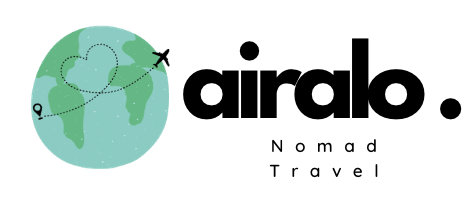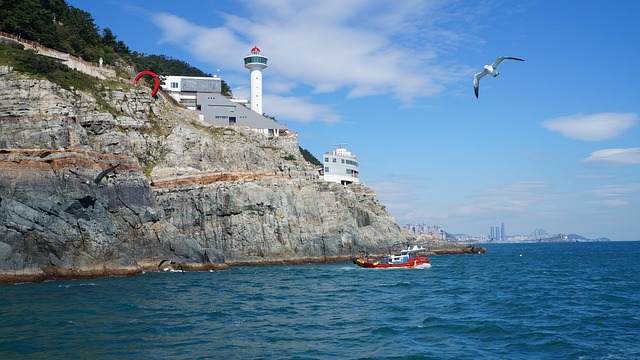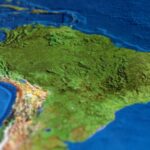
As the global digitalization process accelerates, more and more people are choosing to work remotely and enjoy a “work vacation” lifestyle. This model of combining work and travel not only allows you to experience different cultures, but also improves work efficiency and even brings more personal growth. So, which countries are suitable for your “working holiday” destination? Here are some of the best options, covering multiple dimensions such as working environment, quality of life, cultural experience and visa policies.
1. Thailand: Tropical paradise and efficient work environment
Thailand, especially Chiang Mai and Bangkok, is an ideal destination for many digital nomads. Both have their own characteristics and provide different work and life experiences.
- Chiang Mai: Known for its warm climate, rich natural landscapes and leisurely pace of life. The café here has a relaxed atmosphere, making it a remote worker’s paradise. Many cafes offer high-speed Wi-Fi, comfortable seating, and ample power outlets for long workdays. The mountains and natural landscape surrounding Chiang Mai also provide ample space for relaxing after get off work.
- Bangkok: As the capital of Thailand, Bangkok is a vibrant metropolis that blends modern business with traditional culture. With an international working environment and more business opportunities, it is perfect for digital nomads who want to work in a big city full of opportunities and competition. Bangkok’s infrastructure is well-established, with efficient transportation systems, abundant dining options, and comprehensive networking and workspaces.
Advantages
1. Visa policy: multiple options, flexible stay
Thailand’s visa policy offers a variety of options for digital nomads. Common visa types include:
- Long-term tourist visa (Tourist Visa): Can be extended for 90 days, suitable for short-term digital nomads. If you have special needs, you can extend your visa in Thailand or even maintain long-term residence through multiple entries.
- Work Permit: Suitable for those who plan to work in Thailand for a long time. While traditional work visas typically require employer support, many remote workers can also obtain a visa by registering as self-employed or freelance.
- Digital Nomad Visa: Thailand has launched a digital nomad visa in recent years, allowing remote workers to reside legally and offering more flexible residency options.
2. Cost of living: high cost performance, high quality and low price
The cost of living in Thailand is very low compared to Western countries, especially in the following aspects:
- stay: In Chiang Mai, you can rent a fully equipped apartment for about US$300 to US$500 per month. While Bangkok is slightly more expensive, it is still much cheaper than European and American cities. The monthly rent in the city is about US$500 to US$800.
- food: Thai street food is very cheap, with a street meal costing around $2 to $5. Even the meals in the restaurant are relatively reasonably priced. For example, a simple Pad Thai meal costs around $2 to $3. For those of you who are long-term digital nomads, you can enjoy delicious Thai food at a relatively low cost.
- transportation: Thailand’s public transportation system is very convenient and economical. In Bangkok, subway and skytrain fares usually range from 0.5 to 2 US dollars per trip, while bus and motorcycle rental services in Chiang Mai are also very affordable, averaging only a few dollars per trip.
3. Health and medical care: high-quality medical services
Thailand’s medical system is well-known in Southeast Asia, especially in Bangkok and Chiang Mai, with many hospitals providing international standard medical services.
- Bangkok: International hospitals in Bangkok, such as “Bangkok Hospital” and “Suraka Hospital”, provide high-quality medical services, and many doctors can speak English fluently, which is very convenient for foreign digital nomads. Medical expenses in Thailand are much lower than in European and American countries, and many remote workers choose to have health examinations or treatments in Thailand.
- Chiang Mai: Although Chiang Mai has fewer medical facilities than Bangkok, there are still many hospitals and clinics that provide high-level treatment services. Moreover, the cost of living in Chiang Mai is low, making the cost of medical treatment more competitive.
4. Suitable working environment: comfortable cafes and shared spaces
Thailand’s many cafes and co-working spaces provide an ideal working environment for digital nomads. Especially in Chiang Mai and Bangkok, many cafes and coworking spaces designed specifically for remote workers offer the following benefits:
- high speed internet: Most cafes and shared spaces offer stable and high-speed Wi-Fi, suitable for long hours of work. Fiber optic broadband is commonly used in mainstream workspaces in Chiang Mai and Bangkok, which can meet the needs of work requiring frequent video conferencing and uploading large files.
- Comfortable working environment: These spaces are usually air-conditioned, have comfortable seating, provide power and have ample sockets to ensure a comfortable working environment.
- community atmosphere: These workspaces are often populated by many other remote workers, creating a vibrant social and work atmosphere. It’s a place where digital nomads can share experiences, make connections, and even collaborate on projects.
Disadvantages
1. Internet connection issues: May be unstable in some areas
While high-speed internet is available in most cities and tourist hotspots in Thailand, some remote areas or certain areas in Chiang Mai may face unstable internet. Especially in rural areas outside urban areas, the speed and quality of Wi-Fi may not be able to meet the needs of high-intensity work.
- suggestion: When choosing accommodation or a workplace, it is best to confirm network conditions in advance. Many coworking spaces will offer higher quality internet connections, suitable for digital nomads who need a stable connection. If you choose to live in a quieter place such as Chiang Mai, it is recommended to check the local network supply.
2. Medical coverage: Expats have limited insurance options
Although the quality of medical services in Thailand is high, medical costs may be higher for foreign residents who do not have local health insurance, especially for digital nomads who do not have international health insurance. Foreign residents may need to purchase additional health insurance or choose to purchase local insurance in Thailand.
- suggestion: Before traveling to Thailand, digital nomads should make sure they have insurance that covers medical expenses, especially for sudden illnesses or medical emergencies.
3. Language barrier
Although there are an increasing number of English speakers in Thailand’s big cities such as Bangkok and Chiang Mai, the popularity of English is lower in some remote areas or local markets. This may cause certain communication barriers for some digital nomads who do not understand Thai.
- suggestion: Learning some basic Thai will help in daily life, especially when dealing with local businesses and service personnel.
2. Portugal: Pleasant climate and creative atmosphere
Portugal, especially Lisbon and Porto, has become an ideal destination for the growing number of European digital nomads. It not only has a warm and pleasant climate and beautiful beaches, but also has a rich historical and cultural background, providing remote workers with a perfect environment for integrating work and leisure. Whether it’s a morning walk by the sea or working in one of the local creative workspaces, Portugal offers a unique and enjoyable lifestyle.
Advantages
1. Visa Policy: Digital Nomad Friendly
Portugal’s “D7 visa” is specially designed for remote workers and freelancers, allowing foreign citizens to reside in Portugal for a long time. The advantage of this visa is that the requirements are relatively relaxed. Applicants only need to prove that they have sufficient income to support their lives without employer sponsorship. Specifically, applicants are required to provide proof of financial support for a minimum monthly amount, which is typically less than the minimum wage in Portugal, making this a very flexible and affordable visa option for remote workers.
- Visa advantages: Compared with other countries, Portugal’s visa application process is relatively simple and efficient, and the approval time is usually short. And Portugal’s D7 visa allows the holder and his family members (such as spouse, children) to live together, which is very attractive to digital nomads who want to live with their families.
- Long term living options: The D7 visa is usually valid for two years and is easy to renew. In addition, digital nomads holding a D7 visa can apply for permanent residence or citizenship in Portugal if they have lived in Portugal for five years.
2. Creative atmosphere: Vibrant community and collaboration opportunities
Portugal, especially Lisbon, is a hub for digital nomads and people in the creative industry. There are several innovative co-working spaces here that not only provide quality office facilities such as high-speed internet, comfortable work desks and chairs, meeting rooms and printing facilities, but also create a highly interactive and collaborative environment.
- Cooperation and exchange: Lisbon’s “digital nomad community” is very active, where many freelancers and entrepreneurs share experiences, collaborate on projects, and make business contacts. Whether you are a designer, programmer, writer, or a remote worker in other fields, Portugal provides you with a very friendly working and social platform.
- Industry events and entrepreneurial opportunities: Portugal not only has a gathering place for the creative industry, but also has many entrepreneurial incubators and networking events, providing a wealth of business opportunities. Every year, Lisbon and Porto host several conferences and exhibitions for the global technology, innovation and creative industries, attracting a large number of international participants.
3. Quality of life: high-quality living environment and diverse culture
The quality of life in Portugal is another outstanding advantage, especially the balance between urban and rural areas. Cities such as Lisbon and Porto have a more leisurely pace of life and residents generally live less stressful lives, allowing remote workers to stay productive in a more relaxed environment.
- Pleasant climate: Portugal’s Mediterranean climate has four distinct seasons, with warm but not sweltering summers and mild and pleasant winters, making it very suitable for outdoor activities. The beaches of Lisbon and Porto provide the perfect retreat for digital nomads who enjoy water sports and beach activities.
- Food and culture: Portugal’s dining culture is rich and diverse, from fresh seafood to traditional Portuguese egg tarts, all of which are mouth-watering. In addition, Portugal has a profound historical heritage and cultural accumulation. Its rich museums, ancient streets and unique music forms (such as French ado) provide rich cultural experiences for the people living here.
- Low crime rate and sense of security: Portugal’s public security situation is very good, especially in big cities, and the crime rate is much lower than many other countries in Europe. Residents and visitors alike feel very safe when traveling at night, allowing digital nomads to focus more on work and life without worrying about safety.
Disadvantages
1. Salary level is relatively low
Wages in Portugal are among the low to moderate levels in Western Europe, especially in unskilled industries. The average monthly salary in Portugal is about 1,000 to 1,500 euros, which is much lower than in Western European countries such as Germany, France and the United Kingdom. This may not be ideal for someone looking for a well-paying position, nevertheless, the overall financial burden is still light given the relatively low cost of living in Portugal.
- Cost of living vs. salary: Although wages are lower in Portugal, it is still a very good deal compared to the cost of living. For example, food, accommodation and transportation costs are much lower in Portugal than in many Western European countries. Foreign digital nomads can often enjoy a higher quality of life if they work in high-paying remote jobs.
2. Language barrier
Although Portugal’s younger generation generally speaks fluent English, in some remote areas or smaller towns, Portuguese is still the main language of communication. For digital nomads who do not speak Portuguese, they may encounter certain language barriers when shopping, ordering food at local restaurants, or handling administrative matters.
- Coping methods: In major cities, many shops and restaurants can speak English, but if you plan to live for a long time or go deep into local life, learning some basic Portuguese will greatly improve the convenience and sense of integration in daily life.
3. Mexico: Rich culture and flexible visa policy
Mexico has become the destination of choice for many North American and global digital nomads in recent years. Whether in a metropolis like Mexico City or in a popular city like Cancun or Guanajuato, Mexico offers an ideal work environment and rich cultural experience. Mexico’s unique charm lies not only in its welcoming people and beautiful natural landscapes, but also in its flexible visa policy and relatively low cost of living, making it an ideal place for many remote workers.
Advantages
1. Visa Policy: Flexible “Temporary Resident Visa”
Mexico offers a “Temporary Resident Visa” for remote workers, which is ideal for long-term digital nomads. This visa allows applicants to live in Mexico for up to four years without relying on a work visa. To obtain this visa, applicants only need to provide financial proof that they have sufficient income or savings to support life in Mexico. For remote workers, this means they have the freedom to live wherever they choose in Mexico without having to worry about the cumbersome process of visa renewal.
- Visa requirements: Although Mexico’s visa requirements are relatively loose, you still need to provide proof of financial resources when applying, such as a fixed monthly income or savings, usually more than US$10,000. It is worth noting that visa approval is fast and can usually be completed within a few weeks.
- work flexibility: Digital nomads holding a temporary resident visa do not need to rely on sponsorship from a Mexican employer, which allows them to be very flexible in their job choices and free to choose from global remote work opportunities.
2. Cost of living: Cost-effective living
The cost of living in Mexico is relatively low, especially when it comes to food, accommodation, and transportation. Compared with North American and Western European countries, daily expenses in Mexico are significantly lower, and digital nomads can enjoy a high quality of life at a lower cost.
- Food & Catering: Mexico is a food lover’s paradise, with fresh ingredients available at very affordable prices in local markets. Whether it’s street food or upscale restaurants, Mexican food options are diverse and affordable. For example, a simple street dinner (such as burritos, tacos) generally costs between $2-5, while a meal at a restaurant costs about $10-20.
- Accommodation cost: Monthly rent is very competitive in Mexico, especially in Mexico City, Puebla or Guanajuato. Renting an apartment costs around $300 to $700 per month, depending on the city and region, while in resorts like Cancun, prices are slightly higher but still a great value.
- transportation: Mexico’s public transportation system is well developed and cheap. Bus, subway or taxi fares are within a few dollars in most cities, and even long-distance bus journeys are very cost-effective.
3. Culture and climate: rich cultural heritage and diverse natural landscapes
Not only is Mexico known for its rich history and diverse culture, it is also a country rich in natural landscapes. From tropical beaches to alpine jungles, Mexico’s natural environment provides the ideal place for digital nomads to relax, where the lines between work and relaxation are blurred.
- cultural heritage: Mexico has a rich cultural heritage, including ancient Mayan civilization ruins, colonial architecture, and unique art forms. Whether it’s visiting Mexico City’s museums or enjoying traditional dance and music in city squares, cultural events in Mexico offer a wealth of opportunities for digital nomads to experience.
- natural beauty: Mexico has a wide variety of natural landscapes, from the white sand beaches of Cancun to the mountains of Oaxaca to the grasslands of Zihuatanejo, digital nomads can spend their leisure time in different environments. The climate here is varied and suitable for tourists who like different climates: tropical climate in the south and dry desert climate in the north.
- Diversity of activities: In addition to cultural and natural landscapes, Mexico also offers a variety of outdoor activities, such as diving, surfing, hiking, skiing, etc., especially suitable for digital nomads who like sports and adventure.
Disadvantages
1. Security issues: Be careful when choosing a place to live
Although many cities in Mexico are very digital nomad-friendly, security issues in some areas are still a cause for concern. Although popular cities in Mexico such as Mexico City, Puebla and Cancun have relatively good security, some remote or poor areas of Mexico have relatively high crime rates, especially violence related to drug crimes.
- Security advice: When choosing a place to live, digital nomads need to do some research and learn about the security situation in the area. For example, in Mexico City, areas like Condesa and Roma are relatively safe and livable areas, while some further suburbs or poorer areas may present higher risks. Digital nomads should avoid traveling to areas with unstable security and keep their personal belongings safe.
- local differences: In big cities, especially in areas related to foreign tourists, police and security facilities are relatively complete, and public security is relatively good. However, in some remote towns and villages, police resources are insufficient and may face security challenges.
4. Ireland: Equal parts work and scenery
Ireland, and Dublin in particular, has become one of the hubs of the global tech industry, attracting large numbers of remote workers and digital nomads. Ireland not only offers a modern working environment, but also has beautiful natural landscapes and rich historical sites, providing a perfect blend of work and life. Ireland is an ideal choice for those who want to enjoy nature or explore history when not being productive at work.
Advantages
1. Visa policy: suitable for remote workers with technical backgrounds
Ireland offers a Critical Skills Employment Permit for skilled workers, a visa that provides flexible long-term residence options for remote workers with specialized skills in the technology field. Applicants must have certain academic qualifications or technical background, and employers usually need to provide job guarantees, but for many technical personnel, Ireland’s visa policy is more relaxed and the approval speed is faster.
- Visa application scope: This visa is mainly aimed at those workers engaged in IT, engineering, technology and other fields, and is especially suitable for positions such as programmers, data analysts, and network security experts.
- Visa benefits: This visa not only allows the holder to live and work in Ireland, but also allows his or her spouse and children to travel with them. The visa is valid for 2 years and can be renewed and applied for permanent residence after 5 years of residence.
2. English environment: efficient communication and work
As an English-speaking country, Ireland provides an easy communication and work environment for international digital nomads. Almost all communications in the business and technological fields are conducted in English, which greatly reduces the trouble caused by language barriers.
- Global work environment: Most companies in Ireland use English as their working language, especially in big cities like Dublin, where many international companies such as Google, Facebook, Twitter, etc. have set up offices. For remote workers from around the world, an English-speaking environment not only facilitates efficient work but also facilitates collaboration with global teams.
- cross-cultural communication: Although English is the official language, locals in Ireland are also accustomed to using some Irish Gaelic (Gaelic), which provides an additional language and cultural experience for digital nomads who like to understand the local culture.
3. Natural landscape and tourism resources: perfect combination of work and leisure
Not only is Ireland a great place to work, it is also renowned for its unique natural landscapes and rich historical heritage. Whether away from work or on holiday, digital nomads can easily enjoy excursions to explore Ireland’s natural beauty and ancient history.
- rural beauty: Ireland’s countryside is picturesque, with vast meadows, green hills and tranquil lakes. For example, places like Kildare and Kerry are ideal excursion destinations, especially for digital nomads who enjoy walking and hiking.
- historical sites: Ireland has a long history. From Dublin’s Christ Church, the Irish Ethnographic Museum to the older Giant’s Causeway, these historical sites can be found here for both history buffs and cultural explorers. place.
- Beach & Leisure: For the beach-loving digital nomad, Ireland’s west coast offers spectacular beaches and seaside towns like Clare and Galway, perfect for leisure and water activities.
4. Efficient infrastructure and workspace
Ireland, and Dublin in particular, has great workspaces and infrastructure, and digital nomads can enjoy a productive working environment. Dublin’s many coworking spaces and innovation hubs offer flexible, creative workplaces for remote workers.
- shared office space: Coworking spaces in Dublin, such as WeWork and The Tara Building, offer high-speed internet, quiet workspaces and convenient meeting rooms. Whether you need to work in a team or on your own, these places cater to the digital nomad’s every need.
- modern infrastructure: Internet connections in Ireland are generally fast, especially in major cities such as Dublin and Cork, which often provide broadband networks of up to 100Mbps or more, ensuring that remote workers can work efficiently.
Disadvantages
1. High cost of living: especially in Dublin
While Ireland offers many attractive advantages, its higher cost of living, especially in the Dublin metropolitan area, can put a strain on digital nomads on a budget. Dublin is the economic center of Ireland, and with many major international companies setting up offices here, the cost of living has risen.
- housing costs: Rent prices in Dublin are relatively high. The monthly rent for a one-bedroom apartment in the city center is usually more than 1,500 euros, which is a considerable expense for digital nomads. If you choose an area outside the city, the price may be slightly cheaper, but you will also need to bear the time and cost of commuting.
- daily expenses: Food and transportation costs are higher in Ireland. Eating out will cost around 15 to 30 euros, while a monthly pass for public transport will cost around 100 euros. Therefore, living in Dublin may require a higher monthly budget.
2. Climate: cold and humid weather
Ireland’s climate is known for its changeable and humid climate, especially in winter, when rainy weather is more common. This may be a bit uncomfortable for digital nomads who are accustomed to warmth and sunshine. Although the weather is mild and pleasant in the summer, the temperature changes can take some getting used to.
- rainy weather: The short daylight hours and frequent rainy weather in Ireland in winter may affect the frequency of outdoor activities. Especially for digital nomads who love outdoor sports, they may need to find indoor activities as alternatives.
5. Bali: the perfect combination of vacation and work
Bali, as a holiday destination in Indonesia, has gradually become an ideal destination for digital nomads around the world. Not only does it have beautiful beaches and rich culture, it also provides a variety of work spaces and comfortable accommodation options to perfectly combine work and leisure. Bali is undoubtedly a desirable place for digital nomads who long to work among natural beauty.
Advantages
1. Visa Policy: Flexible Options Designed for Digital Nomads
Bali’s visa policy has been optimized in recent years, providing a variety of visa options specifically for remote workers. The most popular areB211A temporary tourist visa, which allows the holder to stay in Bali for up to 6 months, with the option to renew. In addition, Bali’s visa policy also allows tourists to conduct business activities on the basis of tourist visas, but they need to comply with local regulations.
- Visa advantages: Compared with other popular destinations, Bali’s visa procedures are simple and there is no overly complicated application process. Ideal for digital nomads who don’t want to be stuck on a traditional work visa for long periods of time.
- long stay: Although Bali’s visa is usually valid for 6 months or 1 year, after the visa expires, tourists can easily apply for renewal or even jump to other visa categories in the short term, with high flexibility.
2. Community and facilities: a paradise for digital nomads
Bali offers a wealth of community events and co-working spaces for digital nomads, attracting remote workers from around the world. Especially in **UbudandIn areas such as Seminyak**, the digital nomad community is active and has extensive opportunities for cooperation and exchanges with each other.
- shared office space: There are many well-known coworking spaces in Bali, such asDojo Bali、Tegallalang Coworking and Hubud, these places offer high-speed internet, a quiet work environment, and a wealth of networking activities. It’s an ideal place for remote workers who need inspiration and collaboration.
- digital nomad community: The digital nomad community in Bali is very active, with various social and workshop events held regularly. Through these events, digital nomads not only meet their peers, but also connect with local entrepreneurs and freelancers to share experiences and resources.
- Work and leisure balance: Most workspaces in Bali are set in picturesque surroundings, with many shared spaces facing the sea or lush green rice fields, bringing a relaxed and pleasant atmosphere to work. When not working, digital nomads can relax in cafes, beaches and other leisure facilities.
3. Cost of living: high cost performance
The cost of living in Bali is relatively low, especially compared to prices in Western countries, making it an ideal choice for digital nomads on a budget. Whether it is accommodation, dining or transportation, Bali offers cost-effective options.
- Accommodation options: From simple studio apartments to luxurious holiday villas, Bali offers a variety of accommodation options. Especially in popular areas such as Ubud and Seminyak, monthly rents range from US$300 to US$1,500, suitable for remote workers with different budgets. If you choose shared accommodation or an apartment, the cost is lower, and you can even find long-term rental options that include water, electricity, cleaning and other services.
- Catering expenses: Local dining in Bali is quite affordable, with a traditional meal at a local restaurant running around $2 to $5. In high-end restaurants or beach bars, prices will be slightly more expensive, but still cheaper than in most Western countries. For digital nomads, dining in Bali can be both delicious and cost-effective.
- transportation costs: Transportation costs are also very low in Bali, especially motorcycle rentals. Renting a scooter usually only costs $5 to $10 per day, making it perfect for short trips and daily commuting.
4. Natural landscape and entertainment: seamless connection between work and leisure
Bali’s natural landscape and abundance of outdoor activities provide the perfect leisure option for remote workers. Whether soaking up beaches, waterfalls, or hiking in tropical forests, Bali’s beautiful scenery helps digital nomads relax and unwind after a busy day at work.
- Beaches and water sports: Bali has beautiful beaches and clear waters, which are especially suitable for water sports such as diving and surfing. For example, **UluwatuandJimbaranThe beach is a paradise for surfers, andSanur** offers calmer beaches, perfect for relaxing.
- Wellness and Meditation: Bali is also a mecca for yoga and meditation enthusiasts. Ubud is a world-famous health and meditation center, and many yoga studios and wellness resorts provide digital nomads with rich meditation and relaxation experiences.
- Cultural events and tourism: Bali has a rich cultural heritage including temples, traditional dances and festivals. Digital nomads can explore the culture and history of Bali in their free time and experience the traditions and customs of Indonesia.
Disadvantages
1. Internet connection issues: unstable in some areas
While many co-working spaces and hotels in Bali offer high-speed internet, some of the more remote areas may face unreliable connections. Especially deep in the islands, internet speeds can be slow or have intermittent outages, which can impact jobs that require a high-quality connection.
- network dependencies: For remote workers who rely on video conferencing, cloud work, and high-bandwidth tasks, ensuring that the network at their accommodation or workspace is stable is critical. Confirming the network facilities and network speed in advance is a necessary preparation to ensure that the work proceeds smoothly.
- Temporary solution: Some digital nomads choose to carry backup network equipment (such as 4G/5G routers) or use local SIM cards to ensure that they can still maintain good work efficiency in places where high-speed Wi-Fi is not available.
6. Spain: Culture, climate and comfortable lifestyle
Spain, especially Barcelona and Madrid, has become a popular destination for remote workers and digital nomads from around the world. With its warm and pleasant Mediterranean climate, rich historical and cultural background, and vibrant urban atmosphere, it provides an ideal working and living environment for digital nomads. Whether you are looking for a comfortable quality of life or a worker who wants to integrate into multiculturalism, Spain is a choice not to be missed.
Advantages
1. Visa Policy: Flexible Long-term Residency Options
Spain’s visa policy has been gradually relaxed in recent years, especially for remote workers. Spain offers several visa options for freelancers and remote workers, the most popular of which isEntrepreneur visa for residents of non-European countriesandSelf-employed work visa. This type of visa usually allows remote workers to live and work in Spain for an extended period of time, while also bringing family members with them.
- Visa flexibility: Spain’s visa policy provides ample time and space for remote workers with a stable source of income. People holding this type of visa can legally live and work in Spain. The visa is usually valid for 1 to 2 years and can be renewed. This policy is particularly relevant for those working in technology or creative industries.
- Digital Nomad Visa: Spain plans to launch a digital nomad visa designed specifically for remote workers, which will simplify the application process for remote workers and further attract digital nomads from around the world.
2. Quality of life: healthy diet and abundant leisure activities
Spain not only has a high-quality working environment, but also a very high quality of life. Spanish healthy eating habits are based on the Mediterranean diet, focusing on fresh fruits, vegetables, seafood and olive oil, and maintaining a healthy lifestyle for a long time. In addition, Spain’s beaches, mountains, and historical sites provide a rich variety of leisure activities after work, providing digital nomads with a wealth of choices.
- warm climate: Spain has mild climate conditions, especially along the Mediterranean coast, with warm winters and cool summers, making it suitable for year-round living. Especially in big cities such as Barcelona and Madrid, sunny weather allows people to enjoy the perfect combination of work and life outdoors.
- Rich culture and nightlife: Spain is known for its rich cultural activities and nightlife. Whether it’s local food festivals, concerts, or its rich artistic traditions and museums, Spain has a rich cultural experience for digital nomads. Particularly in Barcelona and Madrid, bars, restaurants and clubs at night also provide plenty of entertainment for social digital nomads.
- beautiful beach: Spanish beaches such asbarcelona beachandmalaga beach, attracting thousands of tourists and residents. Digital nomads can relax on these beaches, spend peaceful weekends, and enjoy the sun and sea of the Mediterranean.
3. Community and culture: a vibrant community of digital nomads
Spanish cities such as Barcelona, Madrid and Valencia have active digital nomad communities. It is not only a gathering place for workers, but also provides opportunities for cross-cultural exchanges for people from different cultural backgrounds. Spain has a strong cultural atmosphere, and activities in art, history, architecture, etc. can attract digital nomads to deeply experience the unique charm of the place.
- digital nomad community: There are several coworking spaces in Barcelona and Madrid, such asOneCoWork、CloudWorksandTalent GardenEtc., these places not only provide high-speed Internet and a comfortable working environment, but also regularly host lectures, networking events and social gatherings to help remote workers connect and collaborate.
- cultural integration: Spain has a rich and diverse cultural background, especially in big cities, where digital nomads can feel the blend of different cultures. From local flamenco dance to modern art exhibitions to traditional Spanish festivals, digital nomads can immerse themselves in Spanish culture and art after work.
- Language advantage: Spain is the second-largest Spanish-speaking country in the world, and remote workers who master Spanish can more easily integrate into local communities and communicate with local residents, customers, and other digital nomads. For people who don’t understand Spanish, English is also widely used in big cities, especially in work and daily life, making it easy to communicate.
Disadvantages
1. Cost of living: high consumption in big cities
Although the overall cost of living in Spain is relatively low, inmadridandbarcelonaIn other big cities, the cost of living is still higher, especially in terms of accommodation and dining.
- Accommodation price: In Barcelona and Madrid, where rents are more expensive in the city centre, monthly rent for a studio apartment is usually900 to 1,500 eurosIf you choose a shared apartment, the rent can be moderately reduced. But compared to other big cities in Europe, rents in Spain are still quite competitive, especially in smaller cities such asValenciaorgranadaWaiting places.
- daily consumption: Although overall prices in Spain are relatively reasonable, dining, entertainment and transportation costs are higher in big cities. Especially when dining out, spending levels in Spanish restaurants can be higher than in other European countries. Taking Barcelona as an example, a typical restaurant lunch might cost15 to 30 euros。
- tax burden: Spain’s personal income tax is relatively high, with the highest tax rate reaching47%. For freelancers and remote workers, this means a portion of the income will be taxed, but the overall tax burden is still lower than in some other Western European countries.
in conclusion
Choosing a destination suitable for a “working holiday” is not just about finding a place with beautiful attractions and a comfortable environment, but more importantly, considering the local working atmosphere, quality of life, visa policy and cost-effectiveness. Thailand and Portugal are two prime examples of countries that each offer a unique living and working experience for digital nomads.
Thailand’s Chiang Mai and Bangkok offer remote workers a low cost of living, productive work environments, and rich cultural experiences, especially for digital nomads looking for a life-work balance. However, local Internet issues and health care challenges are factors that need to be considered.
Portugal attracts a large number of digital nomads with its pleasant climate, creative work atmosphere and high quality of life. Portugal’s visa policy is friendly to remote workers, especially the flexibility of the D7 visa, which provides guarantee for long-term residence. However, wages in Portugal are lower compared to other countries in Western Europe, and you may face language barriers in some areas.
Overall, both Thailand and Portugal are ideal “working holiday” destinations. No matter where you choose, the most important thing is to evaluate your personal needs, work requirements and lifestyle, and choose a place that suits you best so that work and life can be perfectly integrated and bring you a rich life experience.





